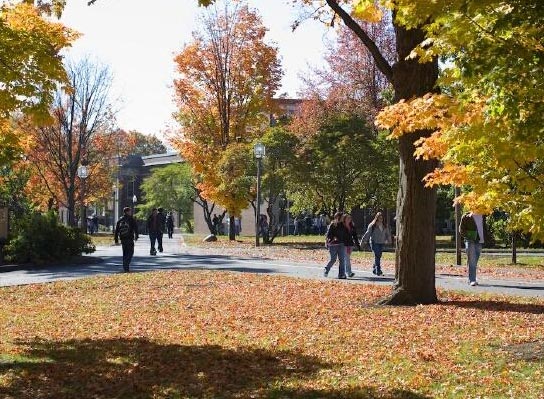|
|
General Information
Within its eight schools and colleges the university offers bachelor’s degrees in 88 areas, master’s degrees in 73, and the doctorate in 53. Ninety-three percent of the approximately 1,087 full-time faculty hold the highest degree in their fields. There are approximately 27,000 students, made up of nearly 20,600 undergraduates and 6,200 graduates, including part-time. The university prides itself on the diversity of its student body, and is committed to the principles of affirmative action, civility, equal opportunity, and the free exchange of ideas. Located in the historic Pioneer Valley of Western Massachusetts, the 1,450-acre campus provides a rich cultural environment in a rural setting. The university is one of the founding members of the Five College cooperative program, offering reciprocal student access among the University, and Amherst, Hampshire, Mount Holyoke and Smith colleges. The University of Massachusetts Amherst is the flagship campus of the Commonwealth’s university system. There are three other campuses that offer undergraduate and graduate programs at Boston, Dartmouth, and Lowell. The University’s Worcester Medical School includes the medical school and associated teaching hospital. Activities at the five University campuses are complemented by outreach education, research, and service programs at sites throughout the Commonwealth, ranging from the Southeastern Massachusetts Agricultural Center in East Wareham to the Berkshire Medical Center in Pittsfield and the Small Business Development Center in Springfield. The Graduate Dean, in collaboration with the University Graduate Council, exercises overall review and supervision of graduate programs conducted in the several colleges and provides guidance in the development of new programs as well as the maintenance of standards for existing programs. Each college of the university has developed its graduate programs in accordance with the highest national professional standards of the respective fields. For information about University of Massachusetts Boston graduate programs, consult the University of Massachusetts Boston Bulletin. For information about University of Massachusetts Dartmouth graduate programs, consult the University of Massachusetts Dartmouth Graduate School Degrees and Programs. For information about University of Massachusetts Lowell graduate programs, consult the University of Massachusetts Lowell Graduate Catalog. Information on graduate programs in medicine is found in the University of Massachusetts Worcester Medical Center Catalogue. |
© 2011
University of Massachusetts Amherst • Site Policies
This page is maintained by the
Graduate School



